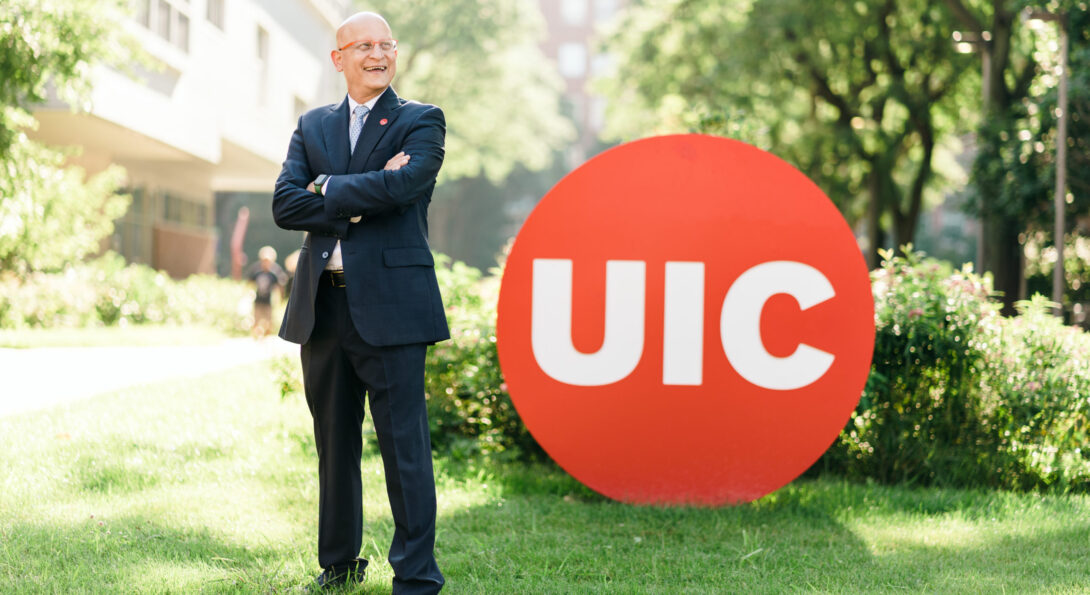Compassion and courage

On Aug. 15, the UIC College of Applied Health Sciences welcomed Carlos J. Crespo as its new dean.
Crespo is nationally known for his work in undergraduate and graduate education, his commitment to diversity and inclusion in the health disciplines,and his research on minority health issues.
He is experienced in academic leadership and strategic planning, as well as interdisciplinary and inter-institutional collaboration.
Crespo, whose research focuses on the epidemiology of physical activity in prevention of chronic diseases, was among the top-ranked principal investigators funded by NIH in 2021. He has written more 100 published articles and contributed to five textbooks on minority health and sports medicine. He is the author of more than 20 government reports, including the 1996 Surgeon General’s Report on Physical Activity and Health.
Crespo received a U.S. Secretary of Health Award for Distinguished Service. He was named a Minority Health and Health Disparities Scholar by the National Institute of Minority Health and Health Disparities.
He serves on a CDC advisory committee for the Community Guide for Physical Activity and the Built Environment; the Physical Activity Alliance Diversity Equity and Inclusion Committee; the Executive Steering Committee of the Diversity Program Consortium of NIH; and the Oregon Latino Health Coalition. He is a fellow of the American College of Sports Medicine.
Crespo earned a DrPH in public health at Loma Linda University, a master’s in sports health at Texas Tech University and a bachelor’s in chemistry from Inter American University in Puerto Rico.
The new dean recently sat down with the magazine to discuss his goals for the future, his passions, and how he wants to make an impact at UIC.
Learn more about Dean Crespo at go.uic.edu/AHSDeanCrespo.